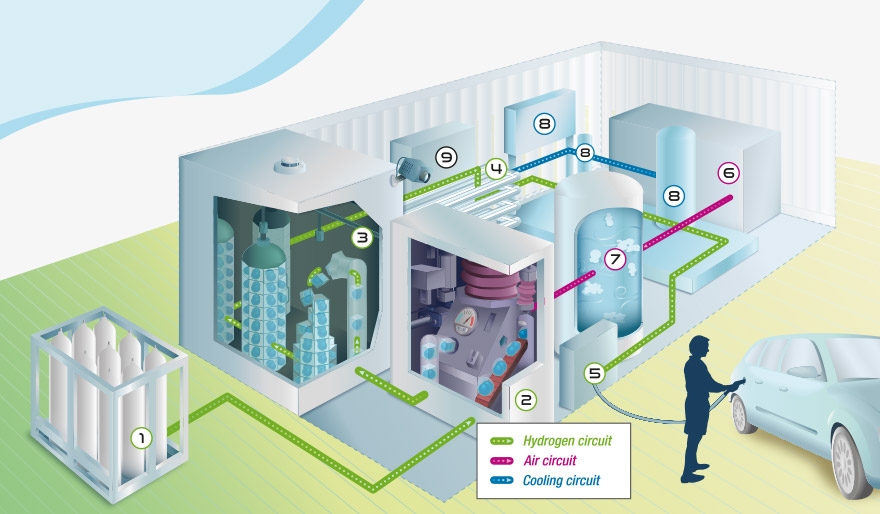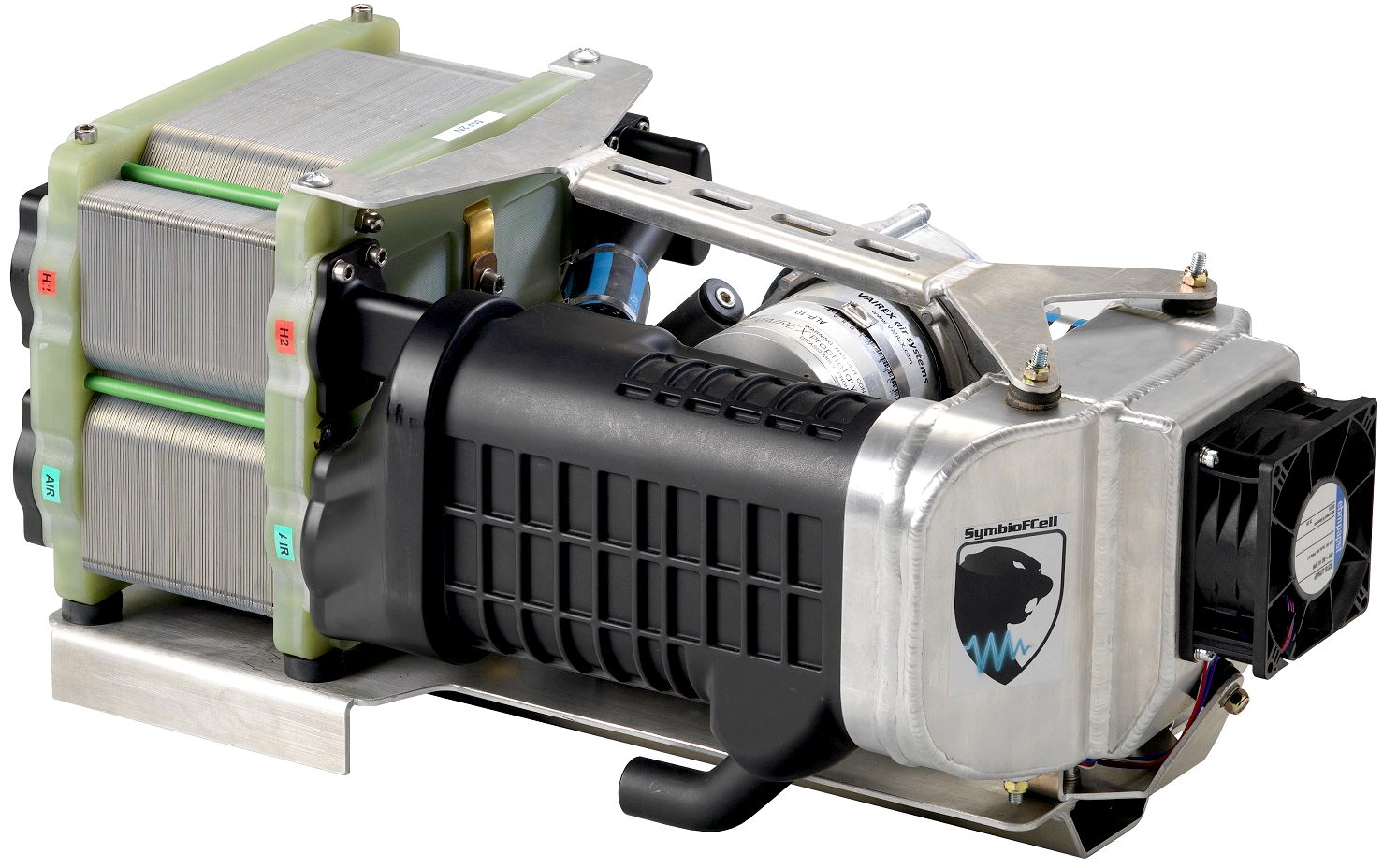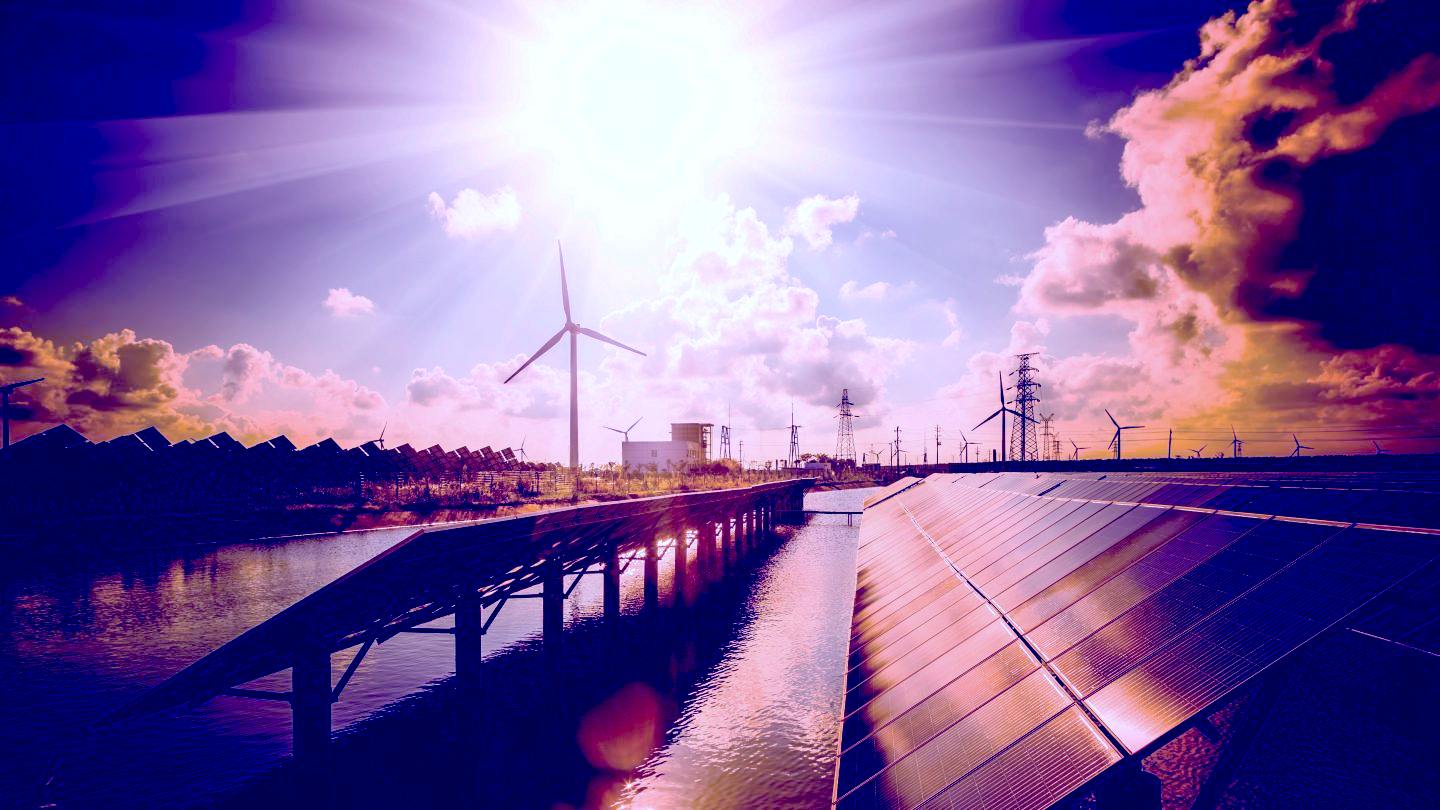|
AMMONIA
Please use our A-Z INDEX to navigate this site where page links may lead to other sites or see HOME
|
|
|
Hydrogen power is the next stage of sustainable development for electrics, by extending range significantly for passenger vehicles and making the practical operation of long range heavy goods vehicles possible. But what about when a fuel cell breaks down? Roadside recovery will take you to the nearest garage for a conventional FCEV, but with the SmartNet™ Universal system, you can have a replacement fitted in a couple of minutes and be back on your way.
Ammonia
can be used in Internal Combustion Engines and in Fuel Cells. Ammonia is now one of the main fuels being considered by the maritime sector to enable the shipping industry to meet new CO2 reduction targets proposed
by the International Maritime Organization (IMO) as 40% by 2030 and 50% by 2050.
Hydrogen, on its own or as a versatile base molecule for other compounds, is gathering support as a potential replacement for fossil-based fuels such as petroleum, diesel coal, oil, and natural gas - that are subsidised. But there is as yet little in the way of an infrastructure for hydrogen - and no subsidies - as yet for renewables.
In 2019 Europe had 177 hydrogen stations at the end of the year, 87 of which were in Germany. France is second in Europe with 26 operating stations. The UK has around 14 (in 2021) but will increase faster than the demand for hydrogen to ensure an adequate hydrogen refuelling network coverage allowing FCEV sales to a broader market.
Putting that into perspective, there are no ammonia or methanol service stations. Not even at the consideration or planning stages. In the words of John McEnroe: "You cannot be serious."
A proposed Hydrogen Refuelling Station by Air Liquide, where hydrogen is made from water on site, compressed and stored in cylinders before being dispensed to FECV customers. These HRS's can only service hydrogen powered vehicles - and there is no load levelling ability. For that you'd need our Universal Smart Batteries.
Typically, hydrogen is delivered to a fuelling location in the same way as it is distributed to industry: in pressurised tanks on lorries. However, at suitable sites hydrogen can be produced on-site by electrolysis, in the best case with the aid of renewable electricity obtained via direct coupling (wind/solar), or through grid-balancing services.
..
LINKS & REFERENCE
https://ec.europa.eu/
Hydrogen powered vehicles are becoming more popular, especially buses in cities, where diesel particulates are choking the population and causing cancer. There is an abundance of clean wind and solar energy that can produce green hydrogen, something that at the moment is not happening.
Please use our A-Z INDEX to navigate this site or see HOME
This website is provided on a free basis to promote zero emission transport in Europe and Internationally. Copyright © Climate Change Trust & Universal Smart Batteries 2022. Solar Studios, BN271RF, United Kingdom.
|



